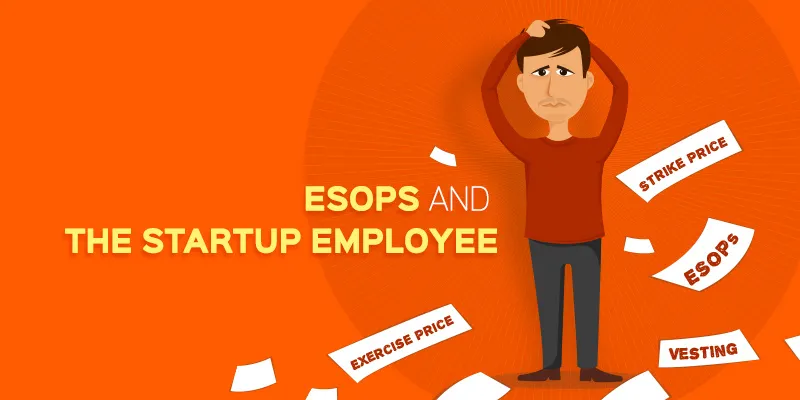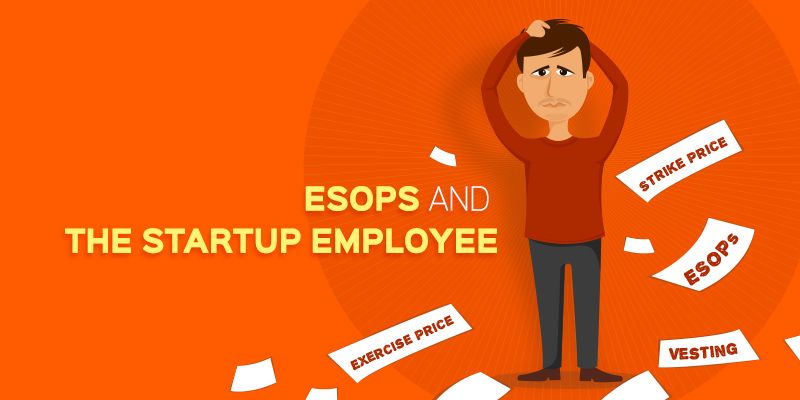How and why ESOPs should be offered to your employees
It's almost a given that in any early stage investment, incoming investors insist for ESOPs to be allocated to present and future employees of the company. The % of allocation can differ from company to company and investors' way of approaching things; that having said its both necessary and helpful to have that allocation earlier on in the life of the company.

Over the next 2/4 weeks, I intent to put down series of notes on various aspects of ESOPs including:
1. Rationale for ESOPs
2. How much should be the allocation and rationale for allocation
3. Salary in cash versus ESOPs; how much to each employee?
4. Structuring and pricing
5. Key clauses in the policy for ESOPs
6. Accounting and tax implications
I intend to make an attempt to share what are my views on the subject and also share experiences over the last 5 years of investing that we have had a chance to be involved first hand.
- Rationale for ESOPs
Simple. Reward, recognise and retain key employees
As a startup, founders may find it difficult to match pay checks of life style biz or even the start ups that have grown well enough to pay their teams market salaries. In such a scenario it would be a good compensation for INITIAL KEY Members of the team to be rewarded through ESOPs. The motivation for the employee is that they can have a sense of ownership earlier on in the biz and should they end up being in the company long enough, they can end up creating significant wealth (if start ups succeed) for themselves; thereby compensating themselves for the risks they took by joining a start up. The risk taken by an employee is two fold -
Loss of salary vis a vis market
And
Biz failing to take off or it takes much longer than desired to take off
It's quite common for founders and investors to expect that a key hire joining earlier on, does not seek market linked compensation in cash and take lower than market salaries (many a times much lower than market linked) in order to not only conserve cash but also create a sense of ownership and long term skin in the game.
The rationale for start up for offering stock (ESOPs) is that they can vest the team member for long term and also conserve all valuable cash for other areas of growth of the biz thereby creating a broad based ownership structure of the company.
For investors - both of the above help. Cash conservation and having someone senior on board who can ably assist / guide founders to take company in the desired direction.
Let me try and put some numbers.
Let's say Start up A is looking to hire a competent Sales head with an understanding of domain and also cross border sales experience. The market salary of such a person was anywhere between ₹40 to ₹60 lakhs plus incentives. The pre series A funded start up was definitely going to find it tough to pay this kind of a salary structure even at fixed level. So they can take offer half the above range of salary in cash and remaining using Esops. I will come to the quantum of ESOPs in my next article and how an interesting incentive payment mechanism can drive morale and motivation too.
Now a few FAQs on above example and rationale:
A) How much low the cash component of salary be pushed for an incoming employee?
The amount of cash compensation should be a function of the best company can allocate to this function keeping all other needs in mind and on the other extreme the comfort it gives to the accepting employee in maintaining basic lifestyle. There are cases where people remunerate only wish stocks for very senior employees who anyways have some wealth to mange but those cases are far and few and definitely not ideal.
B) Should this approach be taken across all levels of employees?
At lower levels a much higher % of cash compensation might be desirable from the employee and even the founders should allocate only as much stock to lower level upfront that is needed to create a sense of ownership. After completion of year or two and upon such member able to rise to the occasion, founder can always allocate more stock. That's easily workable. We have even observed cases where no Esops were offered at all initially and then the person ends up getting meaningful stake basis their performance and relevance to the org.
At higher levels, a higher ESOP component is advocated as well as preferred.
C) Does a start up need to offer ESOPs even if it can afford semi market salaries and compensate rest with cash based performance linked incentives?
It's hard to come across a start up that will not have alternative uses of cash. More importantly Esops should not only be seen as compensation for loss of salaries but also a tool to create a broad based sense of ownership in key members of the team along with expensive yet smart retention tool. Will discuss in greater detail in the next piece.
D) Does it help sharing Esops will all employees across the board or limit to a select few ?
Esops by employees should be seen as aspirational and valuable. It's best when it's user wisely; remember it's a very expensive mode of compensation and for highly reward worthy members. We have observed that initially at seed and pre series A companies, this might be more broad based whilst in larger companies it starts becoming highly selective.
E) What happens if after taking Esops, a person resigns ?
There are ways to manage and address this. Will cover this in the next piece.
F) Should employees be forced to pay for the shares they get under Esops?
Token payments at discounts to previous rounds is advised. There are ways to manage and address this. Will cover this in the next piece.
G) If these are shares, why do you call them Stock options and not shares plan?
These are given in the nature of stock options and only when the employee elects to convert these at their option at a later stage into shares of the company, can they be called shares. This is done to ensure optimisation and compliance with all tax and company law regulations. Will cover this in much greater detail over the rest of the Series.
(Disclaimer: The views and opinions expressed in this article are those of the author and do not necessarily reflect the views of YourStory.)






